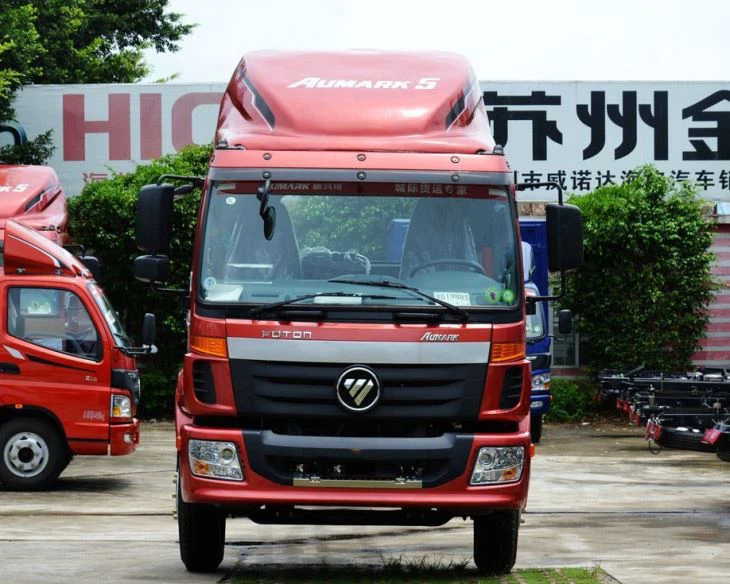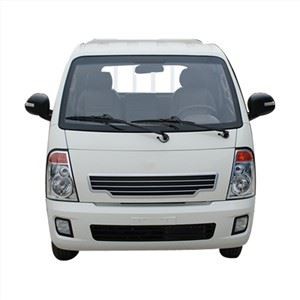Sweeper Lorry: The Comprehensive Guide to Urban Cleaning Vehicles

A sweeper lorry, often known as a street sweeper or road sweeper, plays a crucial role in maintaining cleanliness in urban areas. These specialized vehicles are designed to effectively remove dirt, debris, and litter from roadways and public spaces. This article will explore the different types of sweeper lorries, their functions, maintenance, and various use cases, along with practical tips for choosing the right sweeper for your needs.
What is a Sweeper Lorry?
A sweeper lorry is a type of vehicle equipped with mechanical brushes and vacuum systems that clean streets and public areas. The primary purpose of a sweeper lorry is to enhance urban cleanliness, improve air quality, and promote a healthier environment.
Types of Sweeper Lorries
1. Mechanical Sweepers
Mechanical sweepers utilize rotating brushes to displace debris, which is then collected in a hopper. They are efficient for removing larger particles and are often used in urban settings.
Features of Mechanical Sweepers
- Rotating brushes can adjust to road contours
- Large collection hoppers for debris
- Ideal for heavy-duty cleaning tasks
2. Vacuum Sweepers
Vacuum sweepers use powerful vacuum systems to suction dirt and debris directly into a storage tank. They are particularly effective in collecting fine particles and dust.
Benefits of Vacuum Sweepers
- Reduced dust emissions
- Efficient for various types of debris, including leaves and litter
- Age-old technology with modern adaptations for better performance
3. Regenerative Air Sweepers
Regenerative air sweepers operate by blowing air onto the street surface, loosening dirt, and debris before vacuuming them up. They strike a balance between cleaning efficiency and air quality.
Advantages
- Minimizes dust emissions compared to traditional methods
- Suitable for large areas and long-term use
How Sweeper Lorries Work
Understanding the functionality of a sweeper lorry is essential for appreciating its benefits. The operation can be broken down into several key processes:
1. Collection of Debris
The sweeper lorry employs mechanical brushes or vacuums to collect debris from the street surface. The debris is then funneled into a collection hopper or tank.
2. Dust Control Mechanisms
Modern lorries are equipped with dust control systems, such as water spraying mechanisms, to minimize airborne particles during cleaning. This feature enhances air quality, especially in urban settings.
3. Discharge of Collected Waste
Once the tank is full, the sweeper lorry can discharge the collected debris at designated waste management facilities.
Applications of Sweeper Lorries
Sweeper lorries are versatile and find applications in various settings, including:
1. Urban Road Maintenance
Regular street cleaning maintains city aesthetics, promotes public health, and prevents hazards from debris accumulation.
2. Construction Sites
After construction projects, sweeper lorries effectively remove dust, dirt, and debris to ensure a clean and safe environment for both workers and pedestrians.
3. Event Cleanup
Following large events like concerts or festivals, sweeper lorries play a crucial role in cleaning up the aftermath quickly and efficiently.
4. Airport and Port Cleaning
Airports and ports require specialized cleaning due to high traffic and specific requirements. Sweeper lorries are equipped to handle these demanding environments.
Environmental Impact of Sweeper Lorries

Sweeper lorries contribute significantly to environmental protection. They help reduce the pollution generated by accumulated debris and litter, which can pollute waterways and harm wildlife.
1. Reducing Air Pollution
By continuously removing dust, dirt, and debris from streets, sweeper lorries contribute to improved air quality.
2. Preventing Water Pollution
Keeping roadways clean minimizes runoff and prevents debris from entering stormwater systems, which can lead to pollution of local water bodies.
3. Promoting Biodiversity
Regular cleaning helps maintain cleaner urban spaces, supporting healthier ecosystems and promoting biodiversity.
Choosing the Right Sweeper Lorry
When selecting a sweeper lorry for your needs, consider the following factors:
1. Purpose of Cleaning

The intended use—be it for urban streets, industrial sites, or event cleanup—will influence your choice of sweeper type and features.
2. Size and Capacity

Evaluate the size of areas to be cleaned and the volume of debris typically encountered. This will help in determining the hopper size and functionality required.
3. Budget Constraints
Consider the initial purchase price, maintenance costs, and operational expenses when making your selection.
4. Environmental Regulations
Ensure that the sweeper lorry you choose complies with local environmental regulations regarding dust control and emissions.
Maintenance Tips for Sweeper Lorries
Proper maintenance is crucial for the longevity and functionality of sweeper lorries. Here are some recommended maintenance tips:
1. Regular Cleaning
Conduct regular cleaning of the sweeper’s brushes and vacuum systems to prevent buildup and ensure efficient operation.
2. Routine Inspections
Perform routine inspections to identify any wear and tear, including checking hoses, belts, and mechanical components.
3. Lubrication
Ensure all moving parts are adequately lubricated to minimize wear and facilitate smooth operation.
4. Follow Manufacturer Guidelines
Adhere to the manufacturer’s maintenance schedule and guidelines for replacement parts and repairs.
Economic Considerations
Investing in a sweeper lorry can be a substantial financial commitment. However, the long-term benefits often outweigh the initial costs.
1. Cost Savings from Maintenance
Regular maintenance leads to lower repair costs and increases the lifespan of the vehicle.
2. Improved Aesthetics and Property Value
A clean urban environment boosts property values and elevates the overall quality of life for residents.
3. Enhanced Safety
Keeping roads clear of debris reduces accidents and hazards, resulting in potential long-term savings for municipalities.
Future Trends in Sweeper Lorries
The field of sweeper lorries is evolving rapidly as technology advances. Key trends to watch include:
1. Electric and Hybrid Models
With growing environmental concerns, electric and hybrid sweeper lorries are becoming more popular, reducing emissions and operational costs.
2. Smart Technology and Automation
Incorporating smart technologies can optimize cleaning routes and enhance operational efficiency through GPS tracking and automatic debris detection systems.
3. Enhanced Dust Suppression Techniques
New technologies for dust suppression can further improve air quality in urban areas, making cleaner solutions even more effective.
FAQ About Sweeper Lorries
1. How often should streets be cleaned with a sweeper lorry?
The frequency of cleaning depends on factors like traffic volume, weather conditions, and local regulations, typically ranging from daily to weekly.
2. What is the maximum speed a sweeper lorry can operate at?
Most sweeper lorries can operate effectively at speeds of 5 to 15 mph, ensuring thorough cleaning while minimizing dust emissions.
3. Can sweeper lorries operate at night?
Yes, many municipalities utilize sweeper lorries at night to minimize disruption to traffic and enhance cleaning efficiency.
4. How does a sweeper lorry handle oil spills?
While sweeper lorries are not primarily designed for oil spills, some models can be equipped with specialized attachments for handling hazardous materials.
5. Are there compact sweeper lorries for smaller spaces?
Yes, compact sweeper lorries are available and are particularly useful for cleaning narrow streets, sidewalks, and other confined areas.
6. What should be the main consideration when renting a sweeper lorry?
When renting a sweeper lorry, consider the type required, rental terms, availability, and any additional staff training needed for operation.
